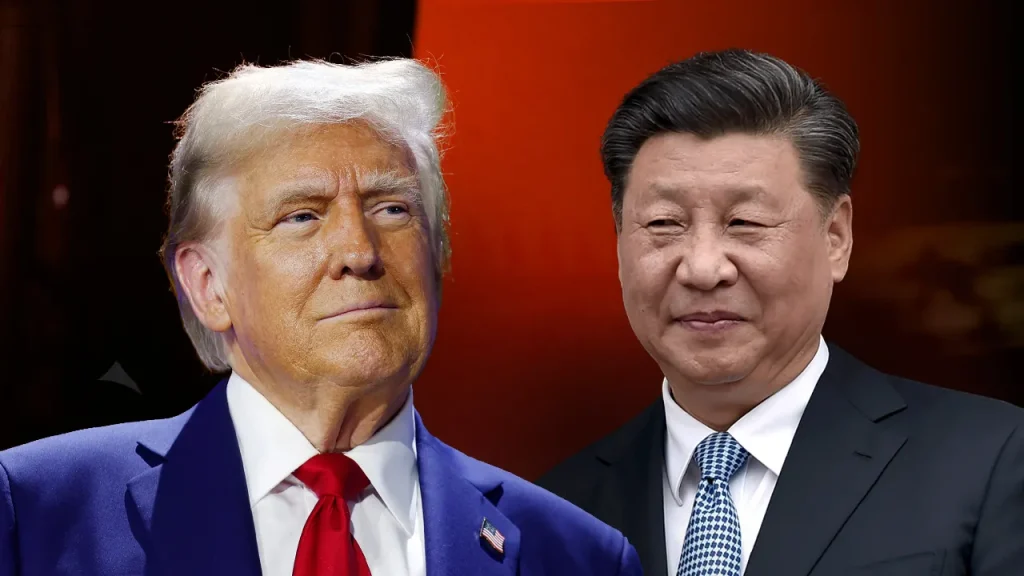The Surprising Invitation and the Complexities of US-China Relations
Donald Trump’s unexpected invitation to Chinese President Xi Jinping to attend his upcoming inauguration sent ripples through the international community. This unprecedented gesture, considering no Chinese head of state has ever attended a US presidential inauguration, ignited speculation about Trump’s intentions and the future trajectory of US-China relations. While sources suggest Xi is unlikely to accept the invitation, its very existence highlights the intricate and often contradictory nature of the interactions between these two global powers. The invitation comes against a backdrop of escalating tensions, including accusations of Chinese cyber espionage, military posturing in the Indo-Pacific, and the lingering threat of a trade war. This complex interplay of cooperation and confrontation underscores the delicate balancing act facing both nations as they navigate their intertwined economic and geopolitical interests.
Trump’s seemingly conciliatory overture towards Xi stands in stark contrast to the escalating tensions between the two countries. The US intelligence community recently disclosed a massive cyberattack, dubbed Salt Typhoon, attributed to Chinese hackers, targeting US telecom companies and compromising the data of millions of Americans, including Vice President-elect JD Vance. This revelation, coupled with the arrest of a Chinese national for allegedly flying a drone over Vandenberg Space Force base, further fuels suspicions and anxieties about China’s intentions. Critics, like China expert Gordon Chang, view the invitation as a sign of weakness, arguing that it emboldens Xi Jinping and reinforces his perception of the US as an adversary. Chang contends that such gestures are misconstrued by the Chinese leadership as a lack of resolve, rather than a genuine attempt at diplomacy.
The backdrop of these security concerns is the looming threat of a trade war, a recurring theme in the US-China relationship. Trump’s previous threats of imposing substantial tariffs on Chinese goods raise concerns about potential economic repercussions for both countries. Such protectionist measures could undermine global trade and potentially exacerbate existing inflationary pressures, a key domestic concern for the incoming administration. The potential for a trade war further complicates the already strained relationship, adding another layer of uncertainty to the future of US-China interactions. This economic dimension adds further complexity to the political and security concerns, creating a multi-faceted challenge for both nations.
Despite the anxieties surrounding the invitation and the broader geopolitical context, some analysts interpret Trump’s move as a pragmatic attempt to re-engage with China through dialogue and negotiation. They argue that Trump, known for his deal-making approach, recognizes the importance of maintaining open communication channels with China, even amidst disagreements. Lyle Goldstein, Director of Asia Engagement at Defense Priorities, welcomes the invitation as a sign of Trump’s willingness to prioritize diplomacy and seek common ground. He contrasts this with the Biden administration’s more ideological stance, suggesting that Trump’s approach could offer a path towards de-escalation and mutually beneficial outcomes.
However, the path towards improved relations is fraught with obstacles. China’s reported consideration of further devaluing its currency in anticipation of potential US tariffs underscores the deep-seated economic tensions between the two countries. This potential move could further escalate trade tensions and complicate efforts to find common ground. The currency issue reflects the underlying economic competition between the two nations, adding another layer of complexity to the already challenging relationship.
The invitation to Xi Jinping, therefore, represents a pivotal moment in US-China relations. It is a gesture laden with symbolism, open to multiple interpretations, and fraught with potential consequences. Whether it ultimately leads to greater cooperation or further confrontation remains to be seen. The future trajectory of the relationship hinges on the actions and reactions of both sides in the coming months and years. The complex interplay of economic, political, and security concerns will continue to shape the dynamics between these two global powers, making the US-China relationship one of the most critical and challenging in the 21st century. Navigating this complex landscape will require careful diplomacy, strategic foresight, and a willingness to engage in constructive dialogue, even amidst disagreements.

